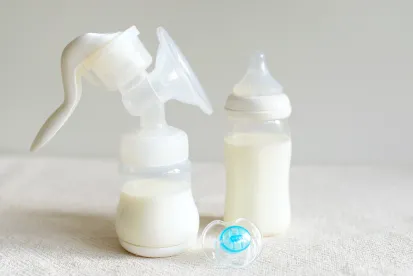Balancing work and motherhood raises age-old questions for women in virtually every industry. Amongst these are how to navigate work during both pregnancy and the transition back to work after the baby is born, which present specific challenges ranging from physical/medical constraints to privacy and logistical concerns. Those challenges may be amplified for expectant and new mothers in the construction industry, especially for women working in the field.
Two new federal laws address these challenges and may help bridge some of the gaps for mothers in the field. Effective December 29, 2022, the Providing Urgent Maternal Protections for Nursing Mothers Act, also known as the PUMP Act, expanded protections for breastfeeding mothers, and effective June 27, 2023, the Pregnant Workers Fairness Act (PWFA) created new requirements for reasonable accommodations requested by employees who are affected by pregnancy, childbirth, or related medical conditions.
The PUMP Act
-
Under this new act, employers must provide reasonable pumping breaks to breastfeeding employees for one year after their child’s birth.
-
The PUMP Act applies to all employers, regardless of size, but if the employer has fewer than 50 employees, it may be exempt if it can show that compliance with the requirements would cause undue hardship. (There are also some exceptions for certain airline, railroad, and motorcoach employees).
-
If the employee is hourly and relieved of all work duties during the pump break, employers won’t need to pay the employee for the break.
-
Employers must provide a place for employees to pump that is not a bathroom, and it must be private and free from intrusion.
For more information on the PUMP Act, see the Department of Labor’s website here.
PWFA
The PWFA is modeled after the Americans with Disabilities Act. The PWFA applies only to employers with 15 or more employees and, unless the employer can demonstrate “undue hardship,” it prohibits those employers from denying their employees a reasonable accommodation if the employee encounters “the known limitations related to the pregnancy, childbirth, or related medical conditions of a qualified employee.”
-
Under the PWFA, employees who are affected by pregnancy, childbirth, or a related medical condition may request a reasonable accommodation. (Note: Employers may require you to provide a doctor’s note).
-
The PWFA does not enumerate specific examples of reasonable accommodations, but the House Committee report relating to the PWFA provided the following examples:
-
Additional breaks for sitting, resting, eating, or drinking water;
-
Flexible hours;
-
Closer parking;
-
Lifting restrictions; or
-
Being excused from strenuous activities or risky exposure to compounds.
-
-
-
Employers may not:
-
Require employees to accept an accommodation without prior discussion. Employers and employees should work together to figure out what will work.
-
Deny employees employment opportunities due to their need for an accommodation.
-
Require employees to take leave — paid or unpaid — if another reasonable accommodation can be provided.
-
Take adverse employment actions against employees due to a request or use of a reasonable accommodation related to pregnancy, childbirth, or related medical conditional.
-
The Equal Employment Opportunity Commission (EEOC) started accepting employee complaints related to the PWFA on June 27, 2023. The EEOC will issue regulations (possibly this year) relating to the PWFA. Those regulations guide courts and employers on how to interpret and implement the PWFA. After the EEOC issues proposed regulations, the public is allowed an opportunity to comment. For more information about how that process works, see Ready, Set, Go – It’s Time for the PWFA.
In the construction industry, women, let alone pregnant or nursing women, are often outnumbered on construction sites. Work in the field can present not only physical challenges to pregnant or nursing women, but also confusion as to what an employee can and should do to maintain performance while addressing the pregnancy and nursing-related needs. The PUMP Act and PWFA appear to define, perhaps for the first time, how pregnant or nursing women in the field can truly get the job done.




 />i
/>i
